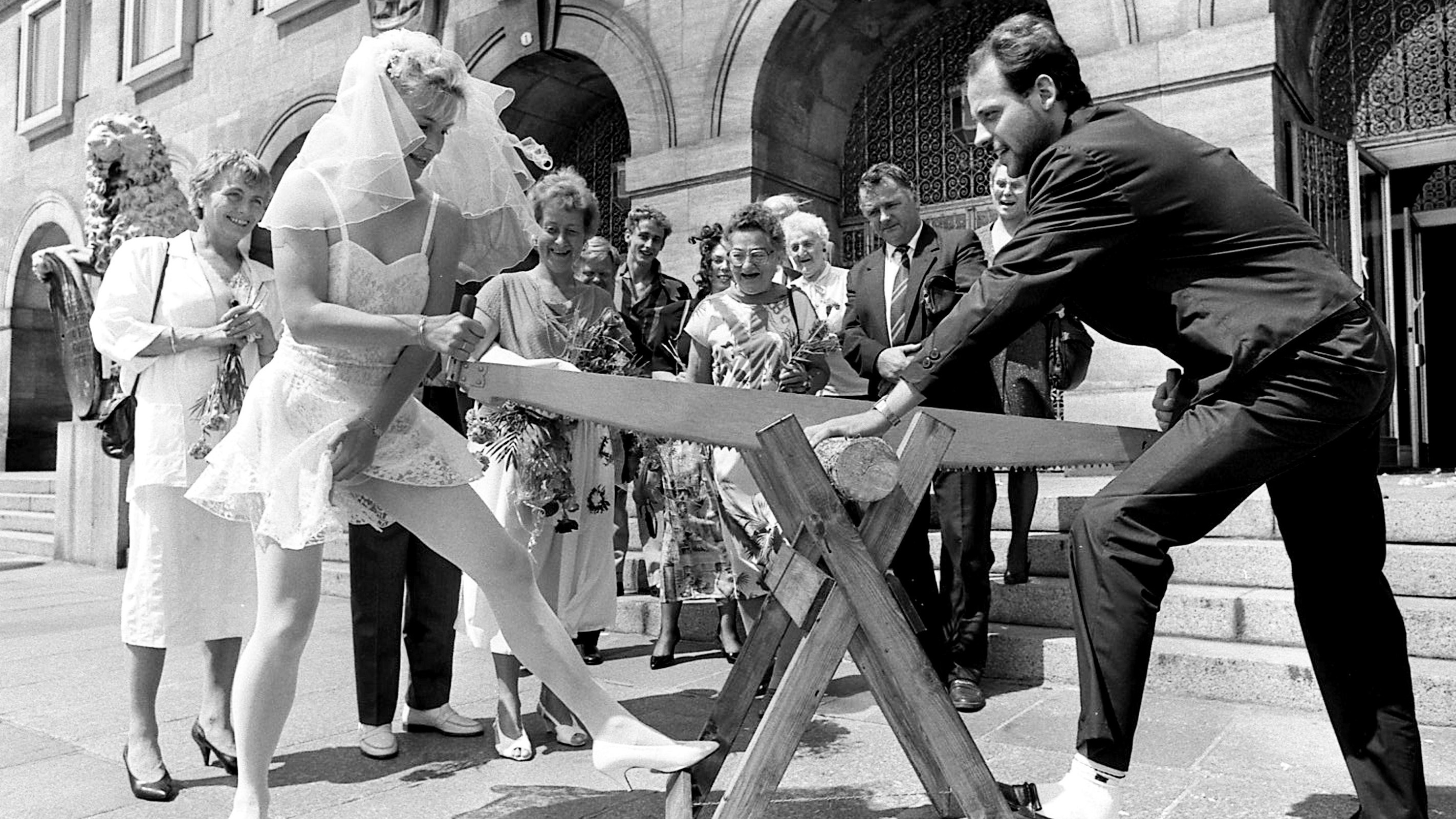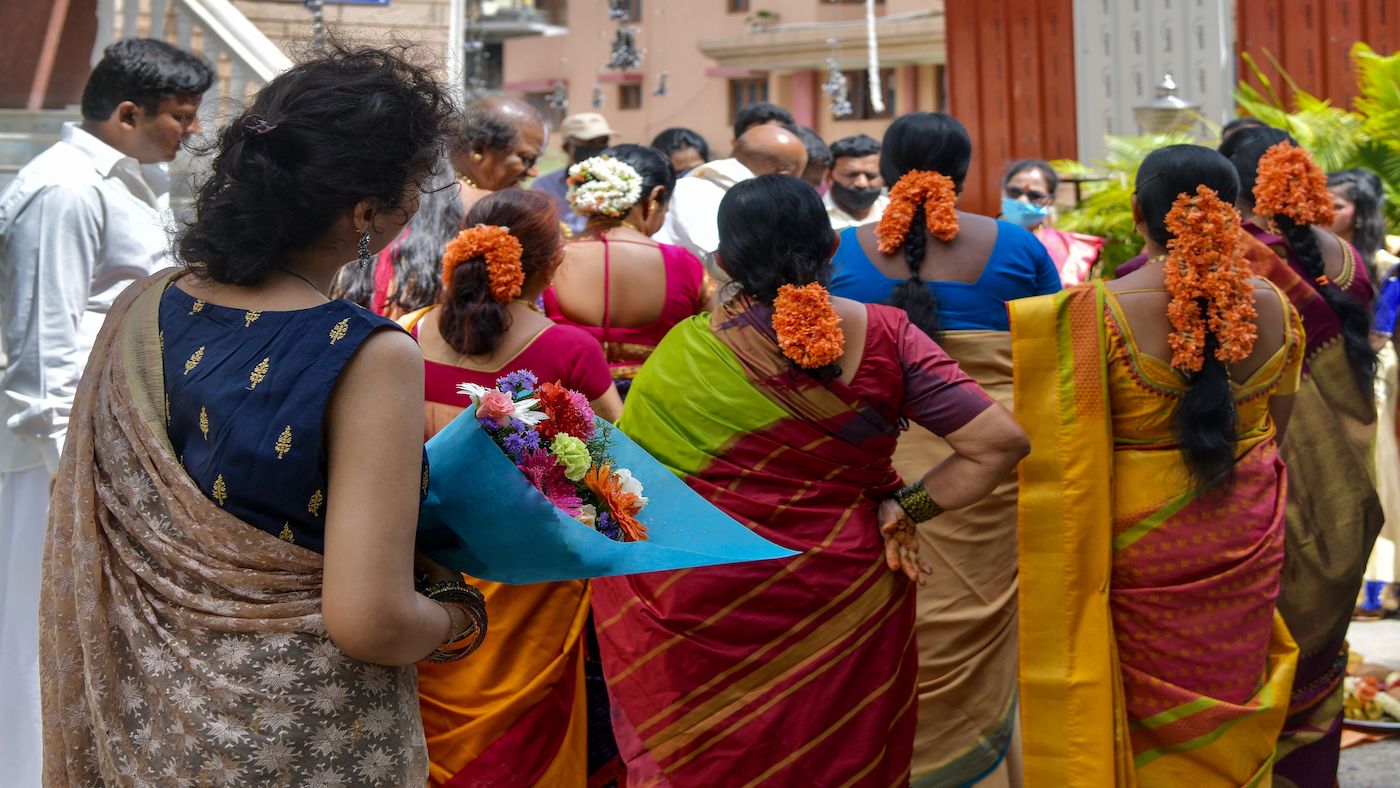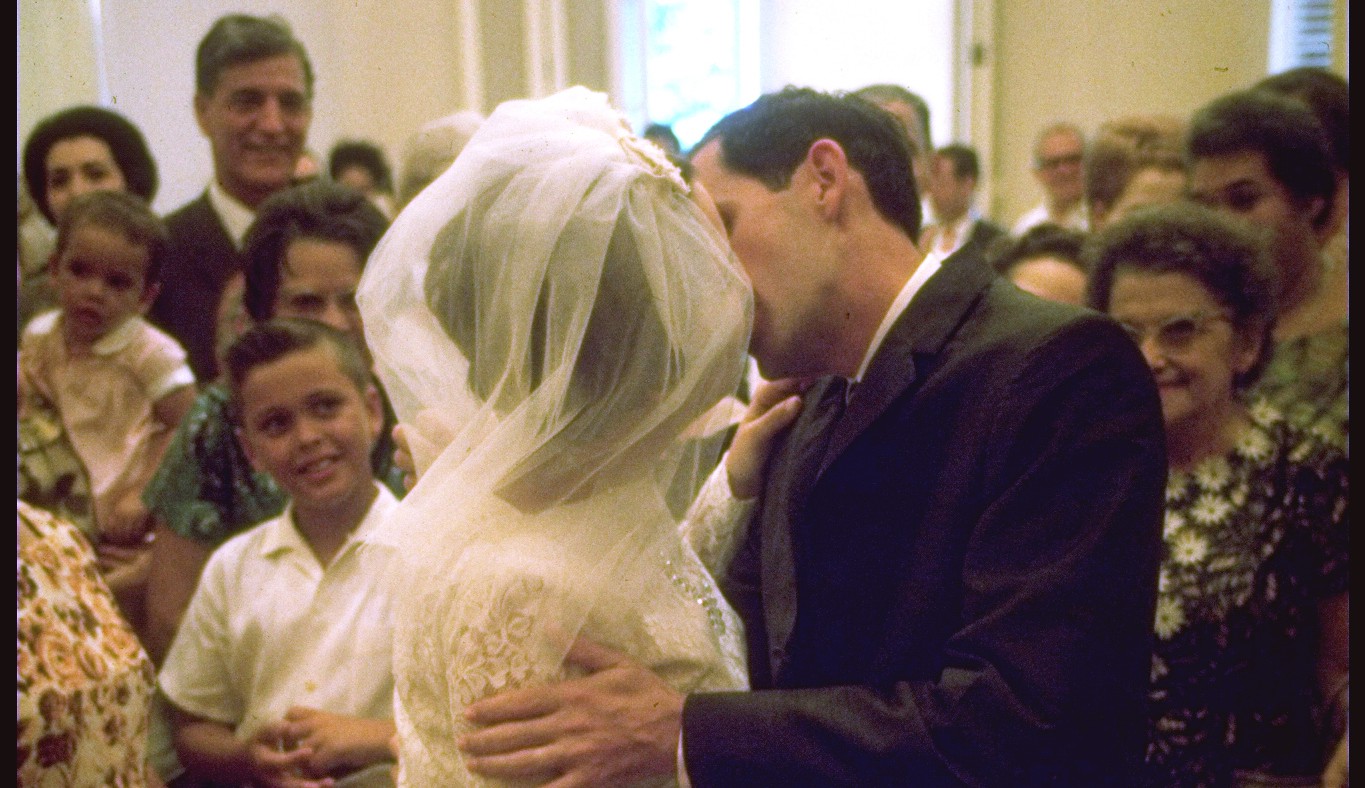The most weird and wonderful wedding traditions around the world
From gifting whale teeth to flogging the groom’s feet, matrimonial ceremonies vary around the world

A free daily email with the biggest news stories of the day – and the best features from TheWeek.com
You are now subscribed
Your newsletter sign-up was successful
Whether it’s breaking plates, tossing the bouquet, or wearing “something blue”, weddings are steeped in traditions that have been passed down for generations.
And while weddings are an almost universal celebration of love and commitment between two people, wedding traditions around the world can vary dramatically.
Germany: the ‘bond’ of sawing
In Germany it’s customary for the bride and groom, while still in wedding attire, to use a dual saw to cut a log in half, said the Daily Star.
The Week
Escape your echo chamber. Get the facts behind the news, plus analysis from multiple perspectives.

Sign up for The Week's Free Newsletters
From our morning news briefing to a weekly Good News Newsletter, get the best of The Week delivered directly to your inbox.
From our morning news briefing to a weekly Good News Newsletter, get the best of The Week delivered directly to your inbox.
Known as Baumstamm Sagen, the couple must work together to break the log in half as a reflection of the couple’s bond “as they face challenges in their marriage”.
Romania: kidnapping the bride
“The most popular tradition”, at a Romanian wedding is the “kidnapping of the bride”, said Romanian Insider.
At around midnight, a group of people at the ceremony, “usually men”, will kidnap the bride and take her to a nightclub or bar until someone, usually “the groom or the godfather”, agrees to pay a ransom.
Once that’s paid, the bride will be returned to her husband and the wedding celebrations may continue.
A free daily email with the biggest news stories of the day – and the best features from TheWeek.com
Kenya: shaved heads attract good husbands
At special rituals in Kenya’s Borana tribe, brides will shave “a large part of their head before marriage”, said News 18.
It is believed that if a bride shaves her head she will get “a good husband”, and it is a tradition that’s been “going on for ages in the tribe”. However, potential grooms are considered more desirable if they have “long and thick hair”. In this culture, men are the ones “known to groom themselves, taking special care of their hair”, added the news site.
India: a colourful ceremony

Hindu wedding celebrations in India can last as long as a week, according to Evie Magazine.
The first few days of the ceremony, called Ganesha Pooja, is an “intimate” gathering of close friends and family, where guests spend most of the night dancing and celebrating, while the bride is “adorned” with henna tattoos all over her body.
On the third day the “seven steps” portion of the ceremony, “saptapadi”, takes place. A fire pit will be lit and the couple will walk around it seven times to represent the seven promises and “sacred vows” they make to each other.
South Korea: playful flogging
In South Korea, flogging the soles of the groom’s feet is a tradition used to make the groom “stronger for his wedding night”, said Pulse.
In this wedding ritual the groom’s feet are tied together with a white cloth and are then flogged, in what is supposedly a test of his strength and character.
The bride usually “pleads” with the floggers to get them to stop, but they don’t desist for a while, as the guests will “encourage” them to continue. During this event relatives and friends will pray for the couple’s health and wellbeing.
Venezuela: sneaking off
In traditional Venezuelan wedding ceremonies, it is “considered a sign of luck” if the couple is able to “sneak away” from the reception without anyone noticing, said Hello! India magazine. In addition, whoever is the first to realise the couple is missing, will also receive good luck.
Cuba: the money dance

In Cuba the lucky couple are “lavish[ed]” with money while they do the “money dance”, said The Knot. This money can be put towards whatever the newlyweds decide.
Along with the dance in which the two are showered in money, the couple also have their first dance, “similarly significant” to the Western wedding tradition.
Fiji: whale’s tooth
Asking a father for his daughter’s hand in marriage is customary in Western cultures. In Fiji, grooms offer a similar sign of respect by giving their future parents-in-law a whale’s tooth.
A large sperm whale tooth, or a “tabua”, is offered by the groom to his future bride’s parents when asking for her hand in marriage, in order to show the gravity of his promise, said The New York Times.
Today, with fewer whales and laws limiting the international trade of endangered species, whale teeth have become increasingly expensive. A single tooth, given in the form of a necklace, can cost hundreds or thousands of pounds.